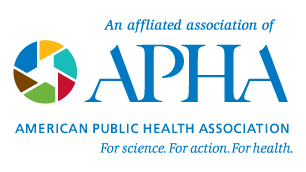OPHA Health Policy & Advocacy CommitteeOregon Senate Bill 695
Bill Summary: Sponsored by Senators DINGFELDER, BOQUIST; Senators ATKINSON, EDWARDS, ROSENBAUM Senate Bill 695-banning Bisphenol A (BPA) from food and beverage containers for infants and children. Also makes it illegal to manufacture or sell food or beverage containers containing BPA. The bill would require any existing stockpiles to be removed from store shelves. Public Health Background: Of the 47,199 babies born in Oregon in 2009 (Hamilton, 2010), approximately 87% are bottle fed by the age of 6 months (“Everyone,” 2011). That doesn’t include the additional children using sippy cups, or eating items from BPA lined cans. Internationally, a study looked at four regions in China where factories use BPA as one of their raw materials (Li, 2010). The findings indicated a correlation between increased urine BPA and declining male sexual function. Finally, BPA, in it’s unbound state, can be transferred to other things such as hands from money or thermal receipts (Schreder, 2010)-there are many Americans in the service industry (for example in 2008 there were 3.55 million Cashiers) handling money and thermal receipts where they are at potentially high exposure risk on a daily basis. Public Health Benefits of Banning BPA from Children’s Food and Beverage Containers: Oregon’s children will be healthier is they are not bombarded with a chemical additive in plastic that is showing negative health outcomes in increasing numbers of studies. By reducing the demand for BPA plastics, Oregon will also be helping international workers who have been documented to have male sexual dysfunction, as a result of their exposure to BPA. As more chemical additives are developed that could potentially be added to the food chain (Andrady, 2009), Oregon, by banning BPA, will send a strong message to the plastics industry that they are being watched and that public health safety will not be compromised. Key Summary Points
Key Supporters
Dear Success of Senate Bill 695, regarding regulating Bisphenol A (BPA) in containers for food and beverage products in Oregon, is important to Oregonians. It is important for Oregon to be at the forefront of states recognizing the danger the chemical additive BPA adds to our food chain. There is currently insufficient evidence to support what a safe level to ingest is, particularly for the very young. Due to insufficient findings regarding this level and that the preponderance of existing research indicates there is a probable negative influence, it is prudent to stop use in food and beverage containers from which it leaches into our food. There have been new 2010 studies that confirm ingestion of this chemical has a negative impact on neurological development in rats, and sexuality in men. Plastics will continue to be a big part of food storage. There are upcoming developments in plastic research that could allow the plastic to detect when food has expired. This may be possible because of the addition of new chemical additives. This is similar to the path taken by BPA when it was added for it’s ability to make plastic more pliable, as well as other reasons. These chemicals all have the potential to leach into the contained food or beverage. The future holds the probability of continual studies and additions of more of these additives. Oregon needs to be critical and conservative in investigating each one. BPA has been investigated, and is not one that passes the safety test, and should be banned. Finally, Oregon is a leader in environmental and global issues. A market for products utilizing BPA, means there must be a manufacturer. China is the biggest importer of BPA, and men involved in the manufacturing process have been studied, and found with high levels of BPA in their systems. This high level corresponds to increased sexual dysfunction. When members of other countries are suffering health issues to provide products, it is important to make sure everything is done to remove/minimize a potential market, and our possible complicity. Banning BPA will have positive impact on the health of Oregonians, and members of the world community. It will send a message to chemical and plastic developers that there will be strict analysis, and refusal to accept any additive that has the potential for harm. It’s important to establish strong ground rules, since these plastics can be valuable world commodities once established, and consequently harder to eradicate. Sincerely,
|

